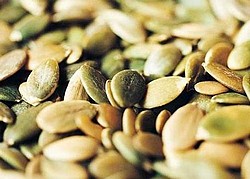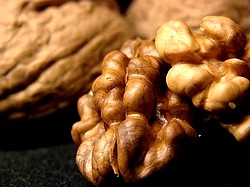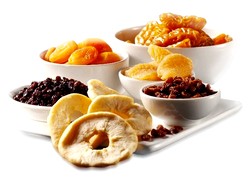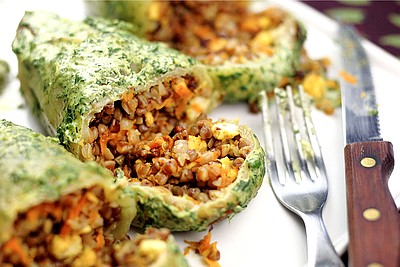Pitta Dosha – Vegetarian?
Since Pitta has a tendency to accumulation we need to lower it, and this can be done through the properly chosen foods. Pitta needs more protein than any other dosha, but it does not necessarily mean that the protein should be of animal origin. Ayurveda recommends becoming vegetarian for Pitta people, because meat can increase body heat which is not beneficial for Pitta, and it is too fatty as well. The result of eating meat for Pitta may be the alcohol, nicotine and even drug addiction. Therefore the best type of protein for Pitta is the one of plant origin, for example, bean protein. Choosing the foods good for Pitta dosha can help keeping it in balance and thus prevent many associated disorders.
Please, remember that the food we eat has a direct influence on our health and consciousness. Therefore every person should be fully aware of what products they consume and select them carefully. Such selection should be done according to one’s Ayurvedic body type – this is especially important during the times when a dosha may get aggravated. That is why it is important to make a Pitta dosha diet plan with the right foods.
What Should A Pitta Dosha Eat?
Vegetables
Recommended: potatoes, white pumpkin, squash, cucumbers, all kinds of cabbage (except of red), herbs, green beans, asparagus, artichokes, onions, garlic, and papaya.
Not recommended: beets, radish, daikon, yellow squash, tomatoes, black olives, bell and hot peppers, tarragon, eggplant.
Allowed in small quantities: turnips, leeks, basil and parsley, celery, parsnips, carrots, and mushrooms.
Fruit
Recommended: ripe peaches, figs, bananas, feijoa, tangerines, nectarines, wren, mango, various berries, mangosteen, guava, coconut.
Not recommended: sour and unripe fruits, grapes, cranberries, lingonberries, felt cherry, pineapple, barberry, and dogwood.
Allowed in small quantities: melon, watermelon, pears and apples, plums, apricots, cherry-plums, grapefruit and oranges, white pomegranate, mountain ash, persimmon, carambola and merry.
Cereals, pulses and seeds
 Recommended: pumpkin seeds, sesame seeds, wheat, oats, rice, beans and buckwheat.
Recommended: pumpkin seeds, sesame seeds, wheat, oats, rice, beans and buckwheat.
Not recommended: red lentils, corn, soy products and melon seeds.
Allowed in small quantities: rye, barley, sunflower seeds and tapioca.
Milk and milk products
Recommended: cow’s ghee and milk, low-fat cottage cheese, cream cheese, ice cream.
Not recommended: yogurt, fermented baked milk, kefir and other cultured milk products.
Allowed in small quantities: mare, nonfat sour cream, goat’s milk, cheese, and airan.
Nuts
 Recommended: cashew, fir, pine nuts and walnuts, chestnuts.
Recommended: cashew, fir, pine nuts and walnuts, chestnuts.
Walnuts – do not forget the walnuts!
Not recommended: bitter and sweet almond, apricot seeds, peanuts, Brazil nuts.
Allowed in small quantities: pecans, hazelnuts, pistachios.
Spices and oils
Recommended: vanilla, cinnamon, anise, fennel, turmeric, mint, cardamom, sesame oil, olive oil, pumpkin seed oil and almond oil, cocoa butter, saffron, asafoetida, fennel and cumin.
Not recommended: white, black and brown mustard, all kinds of red pepper, oregano, canola, corn and mustard oil, vinegar.
Allowed in small quantities: curry, coriander, ginger, allspice and black pepper, lemon juice, parsnip, sunflower oil.
Drinks
Recommended: non-carbonated mineral water, diluted fresh juices (from the recommended fruits and vegetables), coconut milk, chicory, jelly.
Not recommended: green tea, coffee, beer, white and red wine, soda and spirits, Kombucha.
Allowed in small quantities: mate, fruit drinks, dessert red wine, black tea.
Sweets
 Recommended: sesame halva, syrup, soft dried fruits, maple syrup, milk sweets.
Recommended: sesame halva, syrup, soft dried fruits, maple syrup, milk sweets.
Natural, organic soft dried fruits have a positive effect on Pitta.
Not recommended: young honey, refined sugar, rose hips syrup.
Allowed in small quantities: tahini and vanilla halva, brown sugar.

